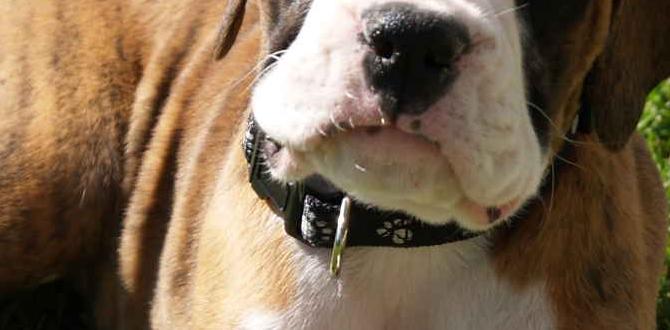Nurturing Your German Shepherd’s Radiance: Finding the Best Dog Food for Skin Issues
Finding the best dog food for skin issues for German Shepherds is a journey many owners embark upon, driven by a desire to alleviate the discomfort their beloved companions experience. German Shepherds, while magnificent in their stature and loyalty, are prone to a variety of skin sensitivities and allergies. These can manifest as persistent itching, redness, ear infections, hair loss, and even digestive upset. Fortunately, a carefully selected diet can play a pivotal role in managing and even resolving these frustrating conditions, restoring your Shepherd’s comfort and their lustrous coat.
The key to selecting the right food lies in understanding the potential triggers for skin problems in this breed. While genetics play a part, dietary intolerances are a common culprit. Many commercial dog foods contain common allergens like chicken, beef, corn, wheat, and soy, which can trigger an inflammatory response in sensitive German Shepherds. Identifying these ingredients and opting for foods that exclude them is often the first and most crucial step.
Decoding German Shepherd Skin Problems and Dietary Links
German Shepherds can suffer from a range of skin ailments, including:
Atopic Dermatitis: This is a common allergic skin disease that can be triggered by environmental allergens (pollen, dust mites) but can also be exacerbated by food sensitivities. Symptoms include intense itching, particularly on the paws, face, and underbelly, leading to secondary bacterial or yeast infections.
Food Allergies and Intolerances: These occur when the immune system overreacts to specific protein or carbohydrate sources in the diet. Unlike a true allergy, an intolerance is a digestive issue, but both can lead to similar skin manifestations.
Contact Dermatitis: While less common and directly related to food, some ingredients in shampoos or bedding used on a dog with a pre-existing sensitivity could worsen the situation. However, for the purpose of diet, we focus on ingested allergens.
Nutritional Deficiencies: A diet lacking essential fatty acids, vitamins, or minerals can negatively impact skin and coat health, making them more susceptible to problems.
Understanding these conditions helps us appreciate why the right nutrition is paramount. It’s not just about filling their bowl; it’s about providing targeted support for a compromised skin barrier and a sensitive immune system.
The Pillars of Optimal Dog Food for German Shepherd Skin Issues
When scrutinizing labels for the best dog food for German Shepherd skin issues, several key components should be at the forefront:
Novel Protein Sources: These are proteins the dog hasn’t been exposed to extensively, making them less likely to trigger an allergic response. Ideal options include duck, venison, salmon, lamb, or even more exotic proteins like rabbit or kangaroo.
Limited Ingredient Diets (LIDs): As the name suggests, LIDs simplify the ingredient list, reducing the chances of encountering an allergen. They typically feature one or two protein sources and a limited number of carbohydrate and vegetable sources.
High-Quality Carbohydrates: Instead of common grains like corn and wheat, opt for digestible carbohydrate sources such as sweet potatoes, peas, or lentils. These are less likely to cause digestive upset and potential skin reactions.
Essential Fatty Acids: Omega-3 and Omega-6 fatty acids are crucial for maintaining a healthy skin barrier and reducing inflammation. Look for foods rich in fish oil (rich in EPA and DHA), flaxseed, or sunflower oil. These nutrients are potent anti-inflammatories and can significantly improve coat shine and skin hydration.
Probiotics and Prebiotics: A healthy gut is intrinsically linked to a healthy immune system and skin. Probiotics introduce beneficial bacteria, while prebiotics feed them, promoting a balanced gut microbiome and better nutrient absorption, which can indirectly support skin health.
Hypoallergenic Formulations: Many brands specifically formulate “hypoallergenic” or “sensitive skin” diets designed to be free from common allergens and easy to digest.
Navigating the Market: Seeking the Best Dog Food for German Shepherd Skin Issues
With a plethora of options available, selecting the right food can feel overwhelming. Here’s a strategic approach:
1. Consult Your Veterinarian: This is the most critical step. Your vet can help diagnose the specific cause of your German Shepherd’s skin issues, rule out other medical conditions, and recommend appropriate dietary trials. They may suggest an elimination diet under their supervision.
2. Consider Hydrolyzed Protein Diets: In severe cases, veterinarians might recommend hydrolyzed protein diets. In these foods, proteins are broken down into such small molecules that the immune system doesn’t recognize them as allergens. These are typically prescription diets.
3. Explore Grain-Free and Limited Ingredient Options: Brands specializing in grain-free or LID formulas are a great starting point. Research brands known for their commitment to quality ingredients and transparent sourcing.
4. Read Reviews and Seek Recommendations: While individual results vary, reading about other German Shepherd owners’ experiences with specific dog foods can provide valuable insights. Look for reviews from owners who faced similar skin concerns with their dogs.
5. Trial and Error (with Guidance): Once you’ve identified a few promising options, be prepared for a trial-and-error period. Transition your dog to a new food gradually over 7-10 days to avoid digestive upset. Monitor their skin and coat condition closely for at least 4-8 weeks before assessing true effectiveness. If you don’t see improvement or notice negative changes, consult your vet about trying a different formula.
Beyond the Bowl: A Holistic Approach
While dog food for skin issues for German Shepherds is a cornerstone of management, other factors contribute to overall skin health:
Grooming: Regular brushing helps remove loose hair and distribute natural oils, promoting a healthy coat. Use gentle grooming tools and hypoallergenic shampoos.
Environmental Control: If your dog has environmental allergies, minimizing exposure to pollens, dust, and other triggers can be beneficial.
* Supplements: Under veterinary guidance, supplements like fish oil can further bolster skin health, especially if the food doesn’t provide sufficient levels of omega fatty acids.
Ultimately, finding the best dog food for your German Shepherd’s skin issues is about a partnership between you, your veterinarian, and a dedication to providing a diet that nourishes them from the inside out. By understanding their specific needs and thoughtfully selecting their nutrition, you can help your magnificent Shepherd shed their discomfort and regain their vibrant health and glorious coat.
Meet Elyse Colburn, the devoted canine companion and storyteller behind the enchanting world of “Tales, Tails, and Adventures Unleashed.” A passionate dog enthusiast with a heart full of paw prints, Elyse Colburn shares heartwarming tales and insightful adventures, celebrating the joy, loyalty, and endless antics that make every dog a true hero. Join Elyse Colburn on this tail-wagging journey, where every post is a love letter to our four-legged friends.


